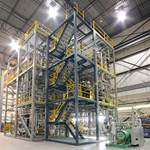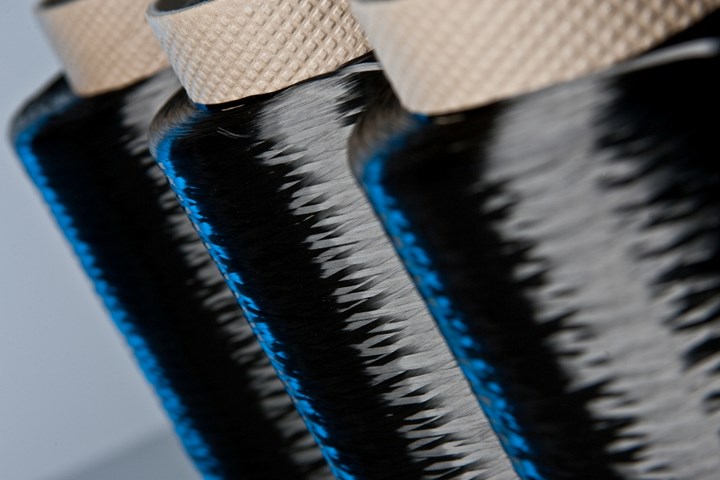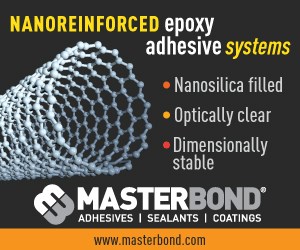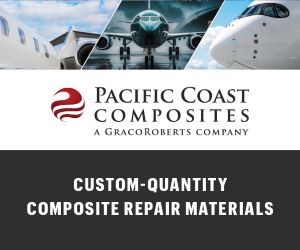Teijin to produce, sell Tenax carbon fiber from certified, sustainable raw materials
Acrylonitrile to be used in Tenax uses waste and residue from biomass-derived products or recycled raw materials that are ISCC Plus certified, maintaining same performance properties as conventional-based products.
Teijin Ltd. (Tokyo, Japan) has announced that it will begin production and sales of Tenax carbon fiber made with sustainable acrylonitrile (AN). The AN uses waste and residue from biomass-derived products or recycled raw materials that have received International Sustainability and Carbon Certification (ISCC) Plus certification. The certified carbon fiber will be produced at Teijin’s Mishima plant in Shizuoka Prefecture, Japan, using the mass balance approach. With this method, materials are verifiably tracked through complex value chains, for example, when biomass-derived raw materials are mixed with petroleum-derived raw materials to create products.
This initiative will advance the Teijin Group’s efforts to minimize the negative impact on the environment and society associated with its business activities. The company strives to protect the global environment in accordance with its long-term vision.
To produce this carbon fiber, Teijin procures ACN manufactured under ISCC Plus certification from suppliers that have obtained this certification. The sustainable AN has the same physical properties as petroleum-derived AN, Teijin notes. Tenax carbon fiber based on this material delivers the same performance attributes and processing as equivalent fossil-based Tenax products. This similarity enables customers to easily drop in Tenax carbon fibr made with bio-based or circular materials, helping to reduce greenhouse gas (GHG) emissions throughout the product lifecycle.
Teijin aims to expand its lineup of sustainable products, so the company is pursuing ISCC Plus certification not only for carbon fiber, including precursor, but also for intermediate products such as prepreg and short fiber which use sustainable raw materials. Further, to strengthen production of sustainable products globally, the company is proceeding with activities to obtain ISCC Plus certification at overseas locations. Teijin’s European facilities are expected to obtain certification in early fiscal 2024, and U.S. facilities should obtain certification during fiscal 2024.
With growing pressure to reduce GHG emissions throughout a product’s lifecycle, the materials industry is striving to reduce the environmental impact of manufacturing processes involving carbon fiber throughout the supply chain. Under these circumstances, Teijin switched the fuel for in-house power generation equipment at manufacturing sites from oil-fired power generation to natural gas in 2017. Additionaly, Teijin established lifecycle assessment (LCA) evaluation for carbon fiber products related to its products in 2021 and 2022. Furthermore, in June 2023, the company obtained ISCC Plus certification for Tenax carbon fiber and the polyacrylonitrile (PAN) precursor fiber produced at Teijin’s Mishima Plant in Shizuoka Prefecture, Japan.
Related Content
-
Materials & Processes: Composites fibers and resins
Compared to legacy materials like steel, aluminum, iron and titanium, composites are still coming of age, and only just now are being better understood by design and manufacturing engineers. However, composites’ physical properties — combined with unbeatable light weight — make them undeniably attractive.
-
Price, performance, protection: EV battery enclosures, Part 1
Composite technologies are growing in use as suppliers continue efforts to meet more demanding requirements for EV battery enclosures.
-
PEEK vs. PEKK vs. PAEK and continuous compression molding
Suppliers of thermoplastics and carbon fiber chime in regarding PEEK vs. PEKK, and now PAEK, as well as in-situ consolidation — the supply chain for thermoplastic tape composites continues to evolve.

















